The Red Envelope: Billkin and PP Krit’s Take on a Love Story Beyond the Grave
In a cinematic landscape saturated with remakes, reboots and sequels, you might ...
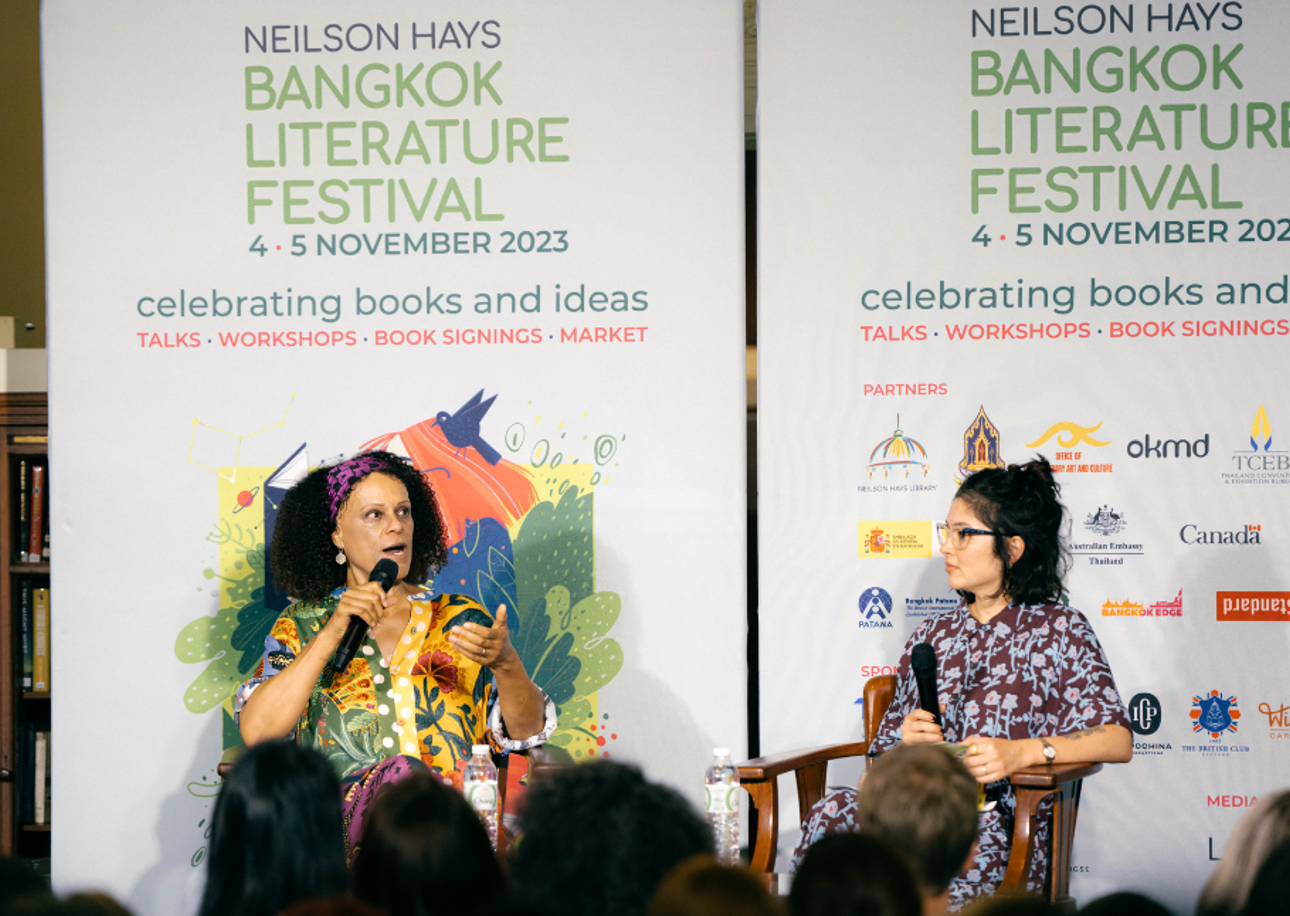
Here, he goes to the 2nd Bangkok Literature Festival just after attending the 20th Ubud Writers & Readers Festival and finds out what it takes to keep book culture flourishing in Asia’s digital age. Both festivals show how nurturing soft power is really hard, but worth it.
Soft power has lately been pushed by people in power. Planning to reap billions by marketing Thai creativity sounds keen but misapprehends the basics. Aspiring to copy the Korean Wave puts the K-Pop industry cart before the horse, which was raised only by years of dedicated groundwork. Soft power can’t be commanded, turned on like a tap, or conjured from mango promotions. It manifests when outsiders want to be like you or consume things you create. It’s not your choice, but their choice.
Soft power is more like gardening. It requires space, imagination, seeding, fertiliser, expert tending and time to grow. What outsiders like about Thailand is also often outside the official narrative. Writers’ festivals are a key test of openness, because they’re all about discussion of independent ideas. Hosting brilliant writers is a clever way to get glowing reviews, as happened to Hay-on-Wye, Jaipur, Byron Bay or Cheltenham, site of the world’s first literature festival in 1949. But how to join such esteemed company?
Thailand shares with Indonesia the quandary of having achieved high literacy, yet low book readership, and scant translation from their languages. Yet the Indonesian island of Bali is famed for the region’s top book feast, Ubud Writers and Readers Festival (UWRF). I joined its 20th anniversary over October 18-22, then the revived 2nd Bangkok Literature Festival (BLF) at Neilson-Hays Library on November 4-5, to see what it takes to be a magnet for thinkers.
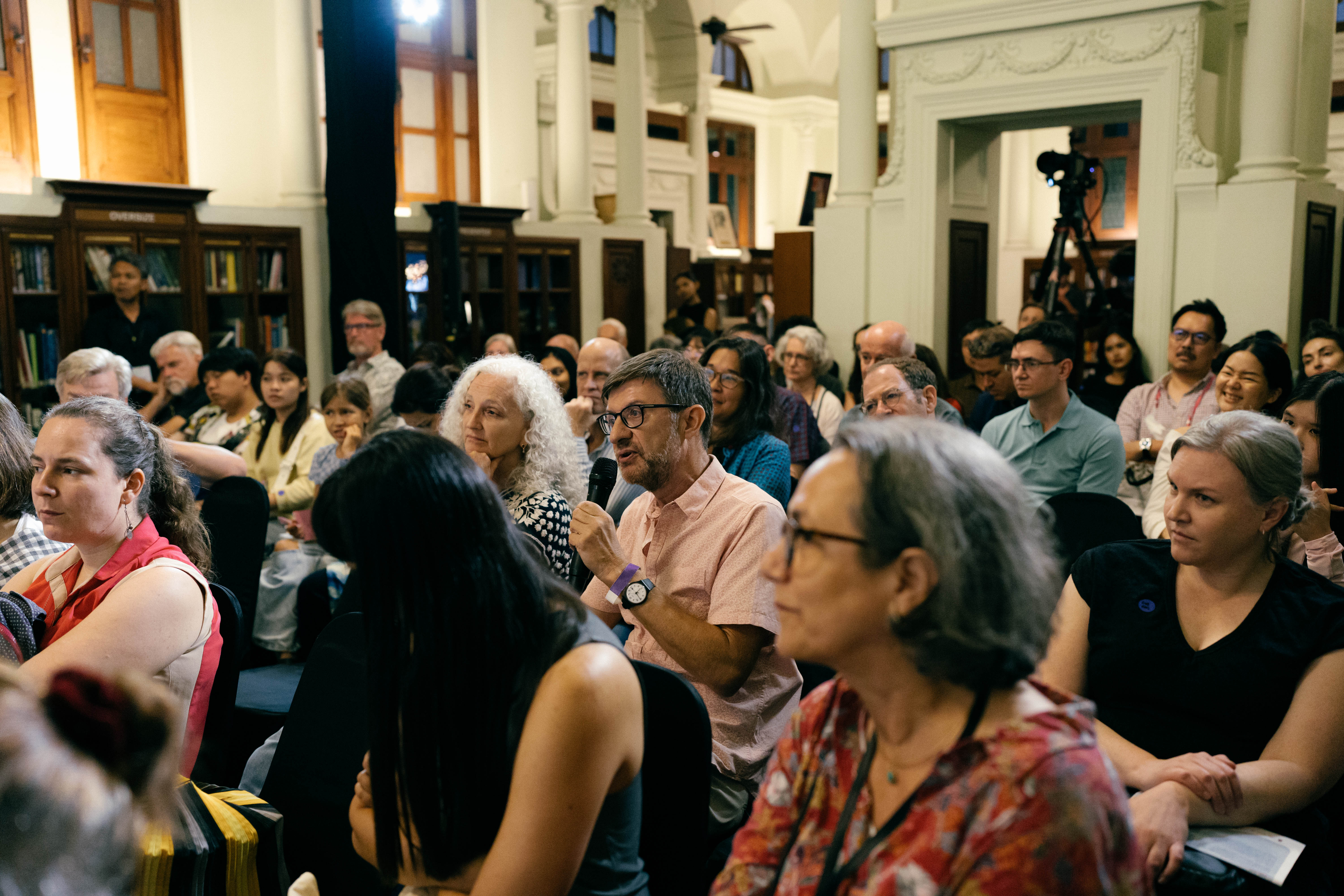
Audience engagement at Bangkok Literature Festival in Neilson-Hays Library. Photo: Courtesy of BLF
Bangkok has a mixed record for sustaining festivals. Often, events in film, fashion, music and other arts fade after 2-3 years due to fickle audiences and sponsors, or founder burnout. Sometimes, rival corporate groups back rival festivals, with that disunity compounded by a lack of well-funded venues or institutions, as design enjoys at Thailand Creative & Design Center (TCDC).
Bangkok Book Fairs draw crowds for their sales, launches, education, comics and business titles, rather than literary culture. The LIT Fest caters to Thai indie writing and translation into Thai, but various events have presented an international platform in English and Thai. An earlier crew at Neilson-Hays hosted Wordplay: Bangkok Literary Festival in 2011 and 2012. Since 2016, Narisa Chakrabongse of River Books has held the ideas festival BangkokEdge several times, offering literary, activist and urbanist programs.
The inaugural Bangkok Literature Festival in 2019 marked 150 years of the Library Association with 40 speakers. “One of the directors of Dhaka Lit Fest gave me the inspiration,” recalled Festival director Nalin Vanasin. “I’d always been a literature lover and wanted to do something for Bangkok. Then I talked to Melinda Page, who’s our curator handling foreign invitations, and we had the SEAWrite Prize committee proposing Southeast Asian writers.”
BLF aims to be annual, after three years lost to the pandemic. “This time we wanted to contribute to the revival after Covid,” Nalin said. Amid the air-conditioned heritage of the Neilson-Hays and the adjoining British Club, the 60 speakers drew crowds despite the rain, with panels on novels, non-fiction, poetry, publishing and topical issues. The Thai and English sessions had simultaneous translation.
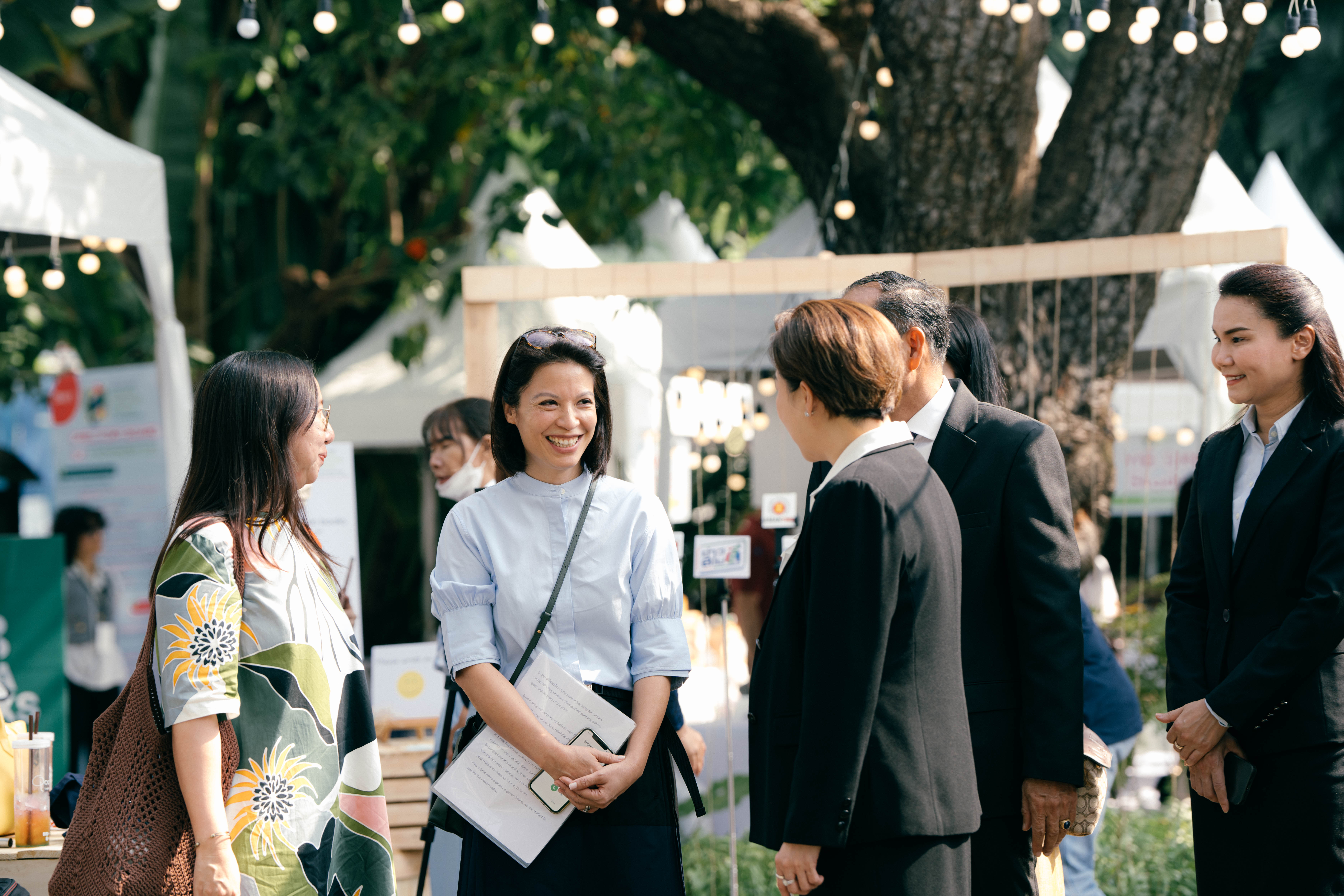
Both events are run by teams of strong female professionals. That reflects the predominance of women in publishing, literary festivals and book readership. Women attendees were about 60 percent at BLF and 77 percent in Ubud, which relies on loyal repeat visitors from Australia. Their willingness to pay a premium for passes (discounted for locals) and author meetings are one reason UWRF thrives.
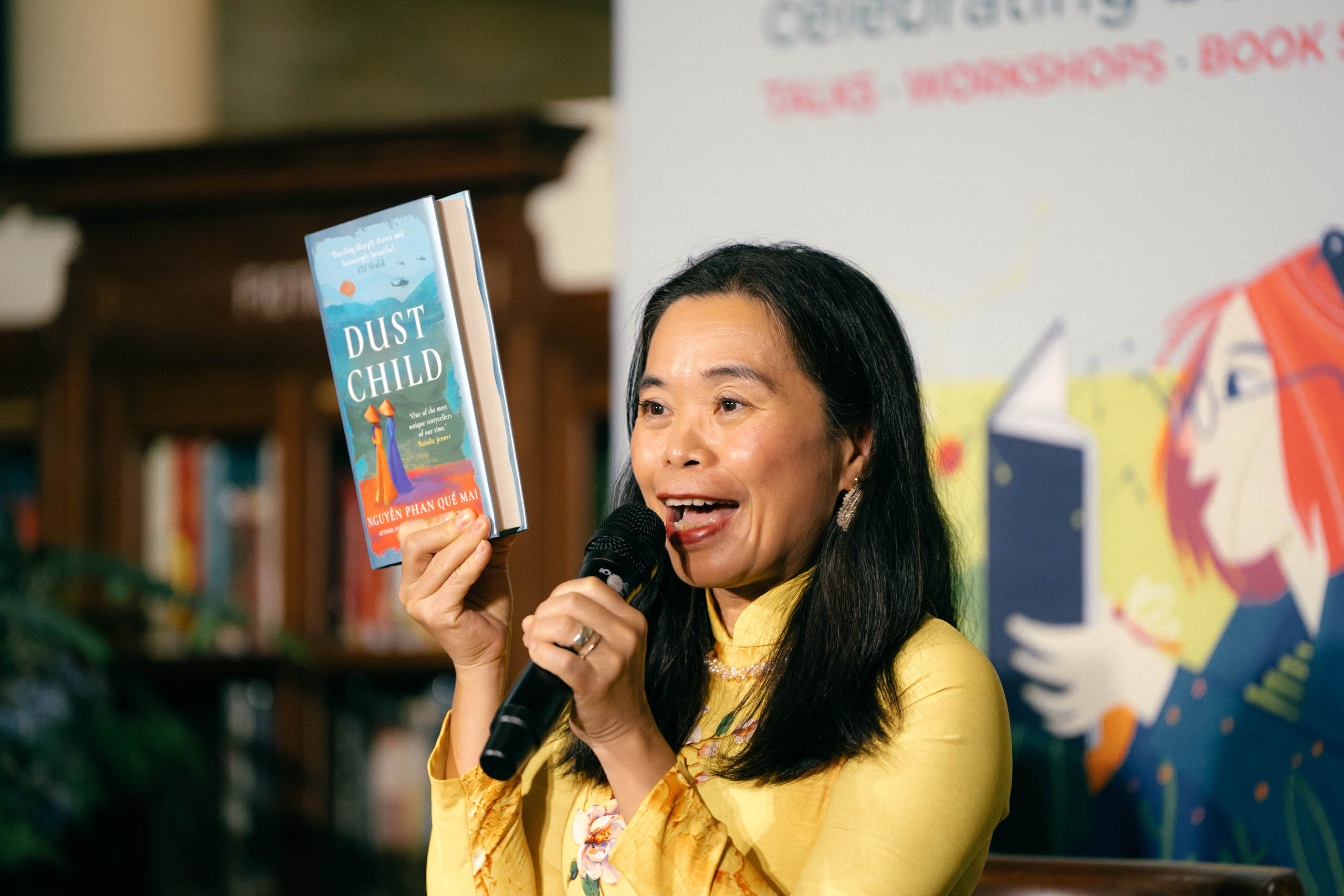
Vietnamese novellist Nguyễn Phan Quế Mai stars at BLF. Photo: Courtesy of BLF
UWRF began in response to the Bali bombing of 2002, which devastated tourism livelihoods. “Everything changed suddenly. I decided we had to do something to bring people back – and it had to be meaningful,” recalled DeNeefe, a restaurateur who’d been dealing with publishers for her memoir. “My whole thing is about looking after people in hospitality. I mean, I run the festival like it’s a big dinner party!”
Ubud’s paradisal ambiance enables access to stars without gatekeeping publicists. “I got chatting in the coffee queue with Gareth Evans, the Australian Foreign Minister,” DeNeefe recounted. “I asked, ‘What brings you?’ And he said, ‘My wife!’ So it’s a really informal thing.”
Given such chutzpah, Covid didn’t daunt DeNeefe, who made a virtue of holding online festivals in 2020 and 2021 by being able to invite big names like Simon Winchester. In person sessions resumed in 2022 and this year there were over 150 speakers. Soft power kept it going.
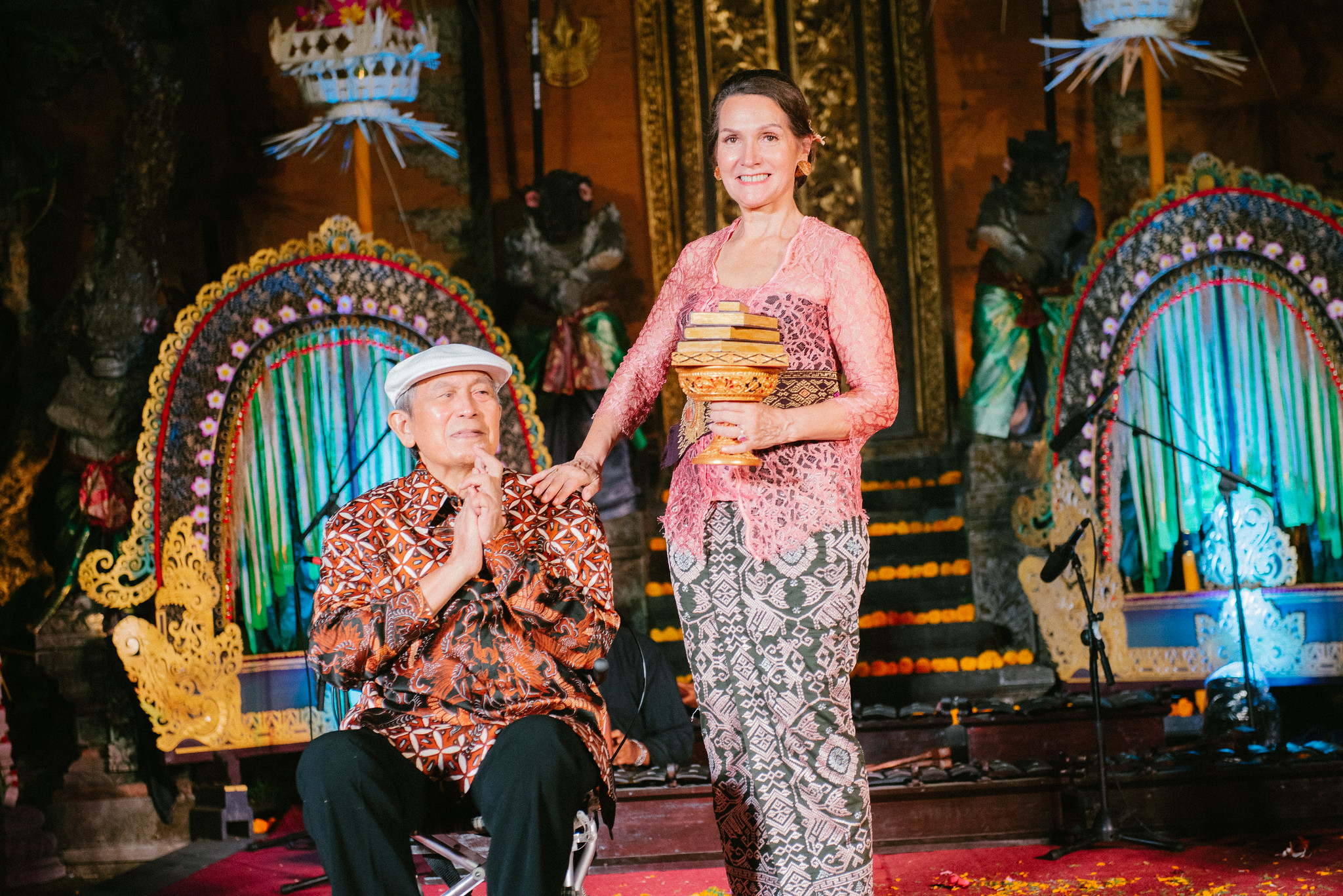
It helps any festival (or trade fair) to fit within a regional circuit, to build links and share costs. Connections to Australian literary festivals in Melbourne and Byron Bay, helped Ubud draw stars like VS Naipaul, Michael Chabon, Arundhati Roy, Lionel Shriver, Geoff Dyer, Thomas Keneally, Amitav Ghosh, Vikram Seth, and rock poet Nick Cave as its cultural ambassador. This year they had the past two Booker prize winners, with Bernadine Evaristo also headlining in Bangkok. “It’s my first time in Bali and in Thailand, so it’s great,” Evaristo said backstage. “I think they’re both fantastic festivals and I love the fact that they’re centring writers from the region. That’s really important.”
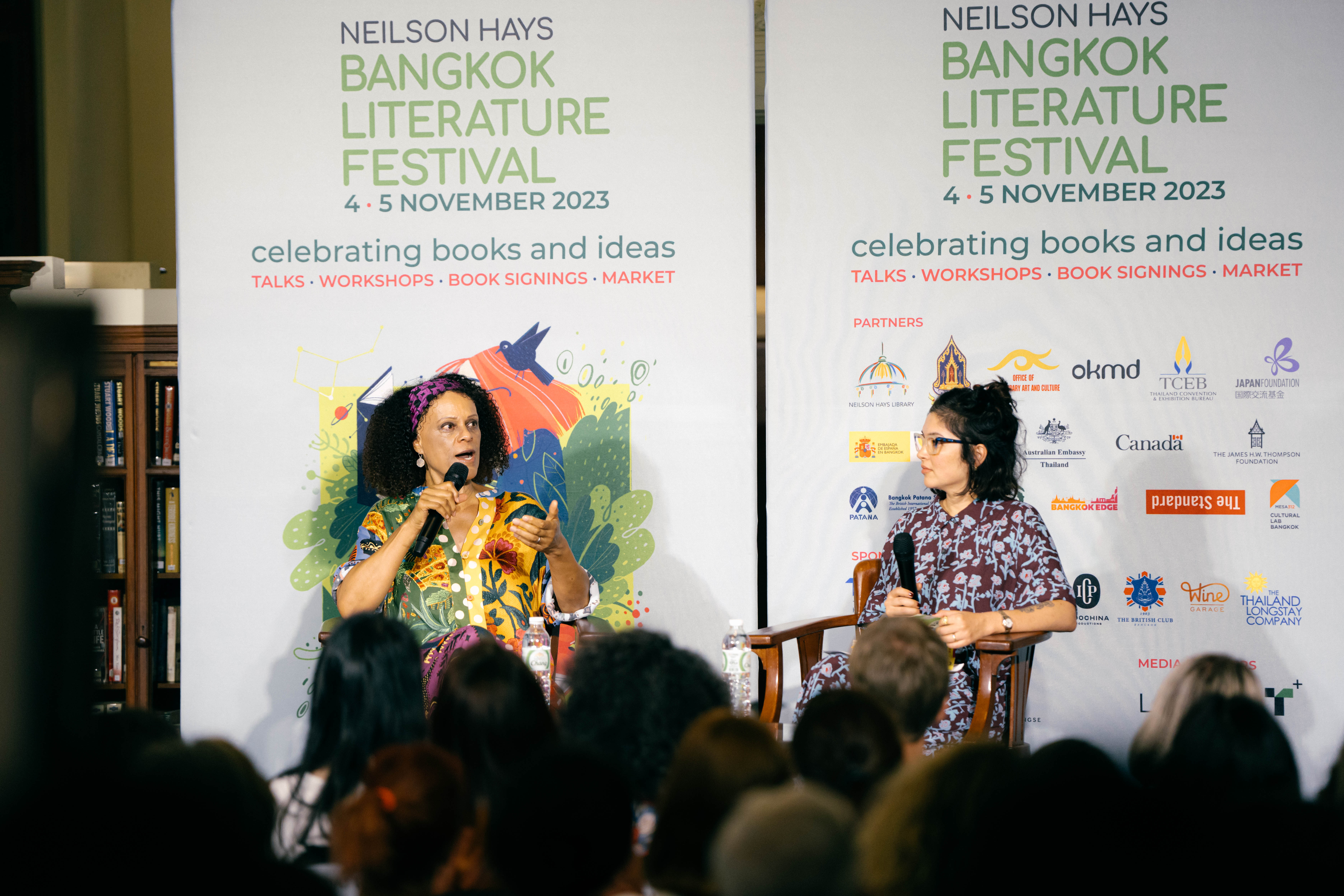
This year, BLF showcased the crossover phenomenon of Bangkok literature written in English, including by Nai Nardone, Sunisa Manning, Emma Larkin, Pim Wangtechawat and Shane Bunnag. “Part of our goal is to promote reading and writing by Thais,” Nalin explained. “We also want Thai writers to be known abroad, and by extension, we want Southeast Asian writers to support each other, so that their work can be exported, translated and adapted.”
One invaluable legacy of UWRF is its annual anthology of Indonesian writing with English translation. Ubud is also treasured by people from across Indonesia as a safe space to talk about sensitive issues, like politics, LGBT, faith, minorities and taboos.
Viability is crucial and UWRF runs very much as a business, employing 12 staff to run this and Ubud Food Festival each June. DeNeefe already had a hotel and restaurants to host events and has built Taman Baca (Book Park) in bamboo and thatch architecture. Without the entertainments that make Bangkok appealing, UWRF spreads across Ubud to include literary dinners, workshops, launches, films, concerts, readings and poetry slams. Ubud Royal Palace hosts the opening ceremony, while the Daliesque museum of painter Antonio Blanco stages the closing concert party. It’s a major happening.
DeNeefe’s art training spawned a strong brand identity. Her Balinese husband picks a local theme with wider resonance, which gets illustrated by an Indonesian artist, who speaks in panels and exhibits their work. That graphic unifies each edition’s collateral, and this year’s display of two decades’ work proved the power of consistency.
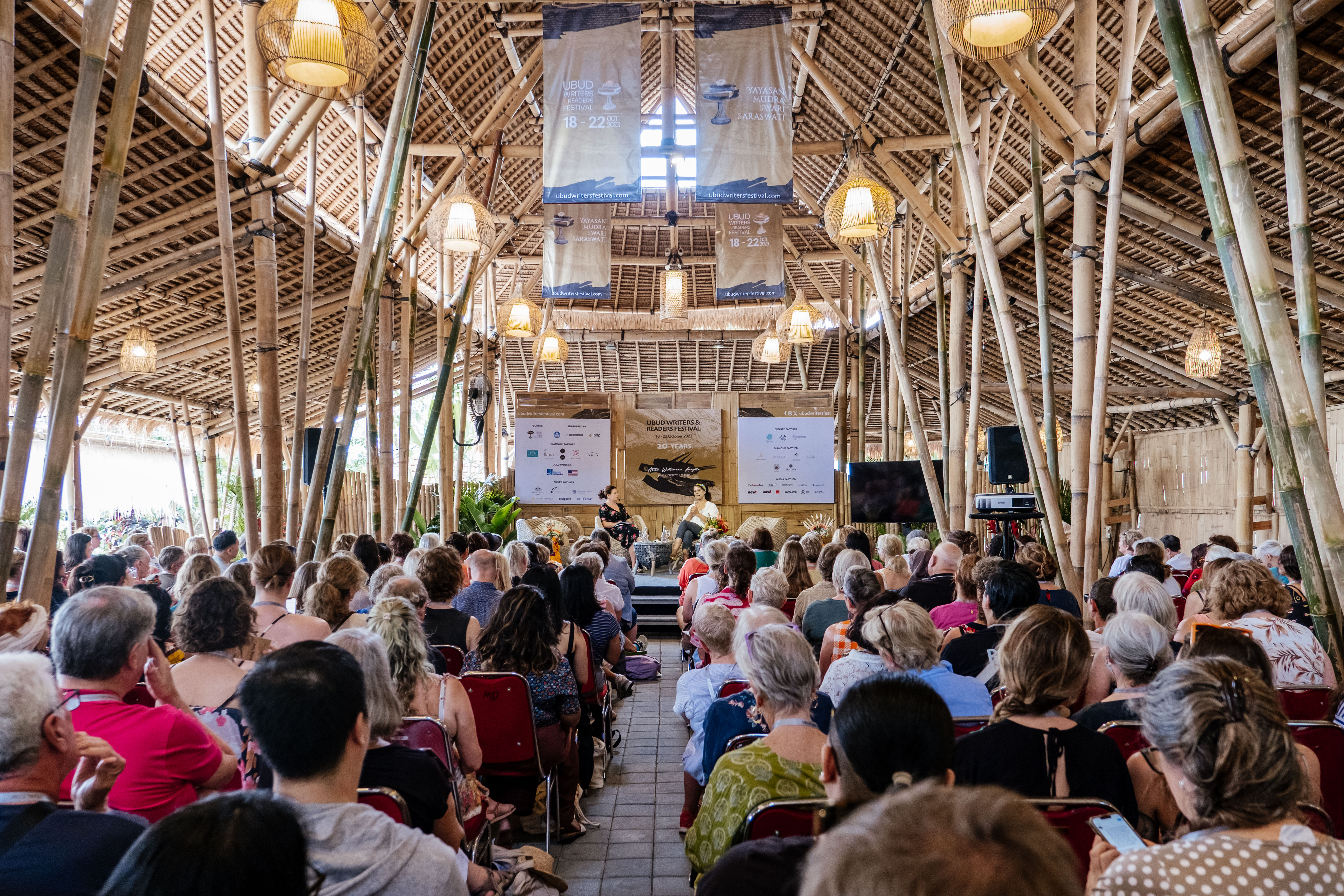
“We wouldn’t really look towards Ubud as a model,” Nalin said, admitting they couldn’t survive on charging for reserved tickets and side events. “Jaipur is one where it’s open to the public and you get tons of students.” So they rely on sponsors and the state.
Happily, BLF gets funding from the Culture Ministry and the Office of Knowledge Management, but state support carries strings. UWRF found it easier to get budgets for laptops and employing staff than for the anthology. Pricing the value of a writers’ festival is also futile. Soft power isn’t a direct payday but rises a tide of goodwill that lifts all boats. Mass tourists will come anyway, but a literary cachet may tempt those elusive “quality tourists” that ministers crave.
The biggest hurdle is the impulse of officials to try to control Thailand’s image. Censorship and propaganda don’t attract but repel – and undermine soft power with yet more hard power. Let’s see if Thailand can provide funded platforms and then get out of the organisers’ way so the talent can shine.
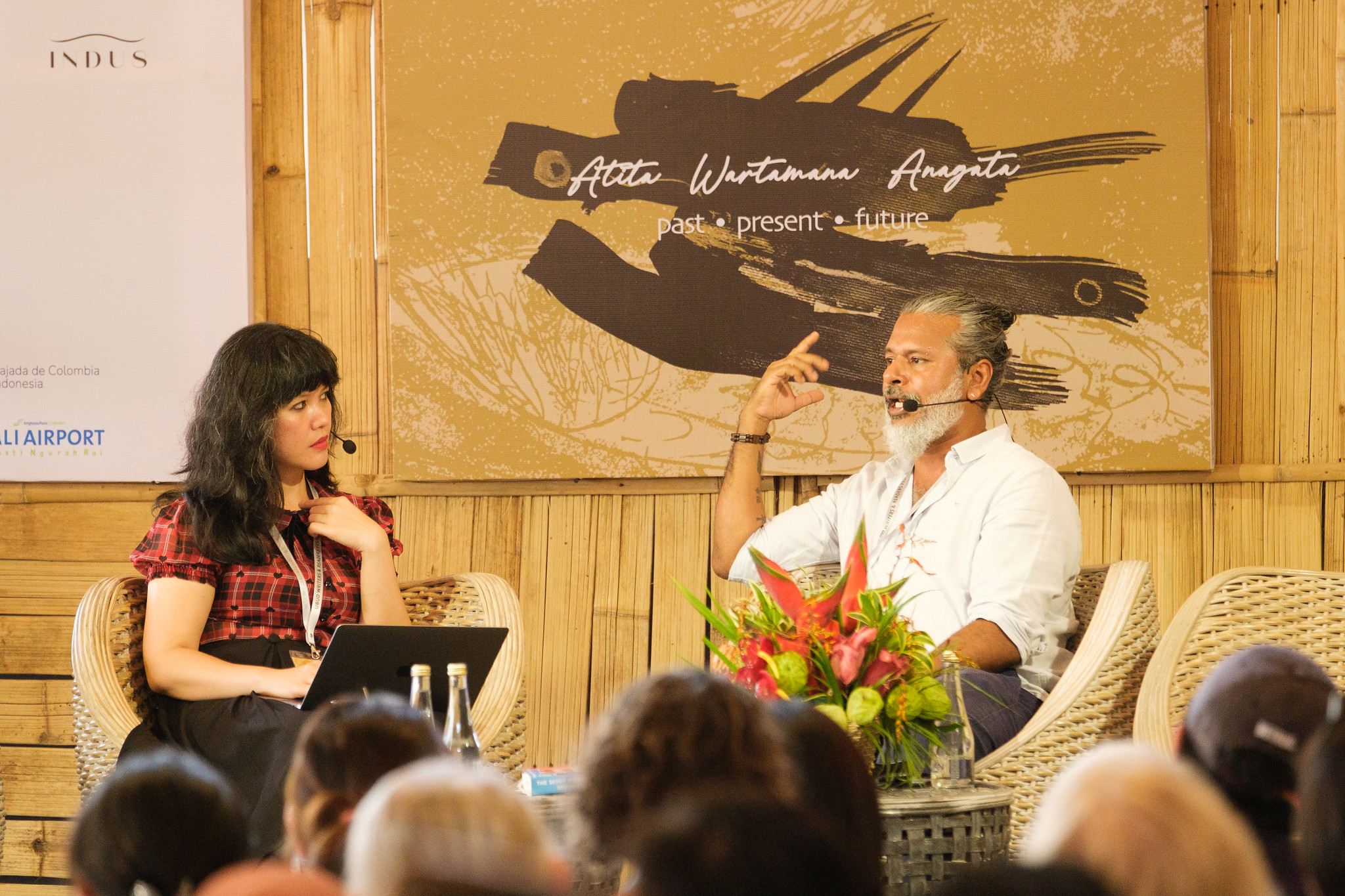
This twice-monthly column, Very Thai, is syndicated by River Books, publisher of Philip Cornwel-Smith’s bestselling books Very Thai: Everyday Popular Culture and Very Bangkok: In the City of the Senses. Disclosure: he spoke at WordPlay in 2011 and 2012, BangkokEdge in 2016 and 2020; and UWRF in 2014 and 2022. The views expressed by the author of this column are his own and do not necessarily reflect the views of Koktail magazine.
In a cinematic landscape saturated with remakes, reboots and sequels, you might ...
These top 5 barber shops in Bangkok are where gentlemen can elevate ...
Must-have gadgets for kids in the Y2K are, predictably, making a comeback ...
While traditional TV shows are serving us endless boy-meets-girl tales. Thailand has ...
Stay ahead of the curve with these three must-visit new restaurants in ...
See how Kim Steppé’s early passions, family values and entrepreneurial spirit continue ...
Wee use cookies to deliver your best experience on our website. By using our website, you consent to our cookies in accordance with our cookies policy and privacy policy